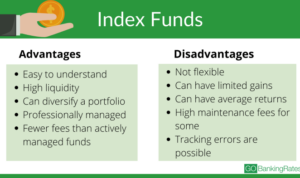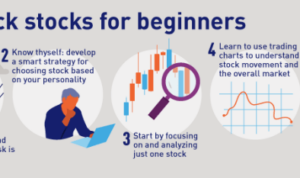Diving into the realm of equity investing basics, we uncover the fundamental principles that drive financial markets and shape investment strategies. Get ready to explore the ins and outs of equity investing in a way that will leave you informed and inspired.
As we delve deeper, we will unravel the complexities of equity investing and empower you with the knowledge needed to navigate this dynamic financial landscape with confidence.
Understanding Equity Investing
Equity investing is the process of buying shares of a company, making you a partial owner and giving you a stake in the company’s profits and losses. It is a significant aspect of the financial market as it allows individuals to invest in businesses and potentially grow their wealth over time.
Equity investing differs from other investment types like bonds or mutual funds because it involves taking on more risk in exchange for the potential of higher returns. While bonds offer a fixed interest rate and mutual funds pool money from multiple investors to invest in a diversified portfolio, equity investing gives investors direct ownership in a company and the opportunity to benefit from its success.
Popular Equity Investment Instruments
- Stocks: Stocks represent ownership in a company and are traded on stock exchanges like the New York Stock Exchange or Nasdaq. Investors can buy and sell stocks to potentially profit from a company’s performance.
- Exchange-Traded Funds (ETFs): ETFs are investment funds that are traded on stock exchanges, similar to individual stocks. They typically track an index, commodity, or sector, providing investors with a diversified investment option.
- Mutual Funds: Mutual funds pool money from multiple investors to invest in a portfolio of stocks, bonds, or other securities. They are managed by professional fund managers who make investment decisions on behalf of the investors.
Benefits of Equity Investing
Equity investing offers several advantages compared to other asset classes. One of the key benefits is the potential for high returns over the long term. By investing in stocks, investors can benefit from the growth of the companies they hold shares in, leading to significant wealth accumulation.
Building Wealth
Equity investments have historically outperformed other asset classes like bonds and cash equivalents over the long term. For example, investing in well-established companies like Apple or Amazon years ago would have resulted in substantial gains as these companies experienced exponential growth in their stock prices. This demonstrates how equity investing can help individuals build wealth steadily over time.
Diversification
Another advantage of equity investing is the opportunity for diversification. By investing in a mix of different stocks across various industries, investors can spread out their risk and minimize potential losses. Diversification is a key strategy in building a robust investment portfolio that can withstand market fluctuations.
Dividend Income
Equity investments can also provide a source of passive income through dividends. Many companies distribute a portion of their profits to shareholders in the form of dividends, which can provide a steady stream of income in addition to potential capital appreciation. This can be particularly beneficial for investors seeking regular income from their investments.
Long-Term Growth Potential
Equities offer the potential for significant long-term growth, especially for investors with a high tolerance for risk. While stocks can be volatile in the short term, over time, they have historically delivered solid returns that outpace inflation. By staying invested for the long term and weathering market fluctuations, investors can benefit from the growth potential of equities.
Risks Associated with Equity Investing
Investing in equities can offer high returns, but it also comes with inherent risks that investors should be aware of. These risks can potentially lead to financial losses if not managed properly.
Market Risk
Market risk refers to the possibility of losing money due to factors affecting the overall stock market, such as economic downturns, political events, or natural disasters. This risk is inherent in equity investing and cannot be eliminated completely. To mitigate market risk, investors can diversify their portfolios across different sectors and industries to reduce the impact of market fluctuations on their investments.
Company-Specific Risk
Company-specific risk, also known as non-systematic risk, is the risk associated with investing in a particular company. Factors such as poor management decisions, legal issues, or loss of market share can negatively impact the stock price of a specific company. To mitigate company-specific risk, investors can conduct thorough research before investing in a company, focusing on its financial health, competitive position, and growth prospects.
Liquidity Risk
Liquidity risk refers to the risk of not being able to sell an investment quickly at a fair price. This risk is more prevalent in small-cap stocks or stocks with low trading volumes. To mitigate liquidity risk, investors can focus on investing in liquid stocks with high trading volumes to ensure they can buy or sell shares when needed without significantly impacting the stock price.
Interest Rate Risk
Interest rate risk is the risk that changes in interest rates can impact the value of equity investments. When interest rates rise, bond yields increase, making equities less attractive in comparison. To mitigate interest rate risk, investors can consider diversifying their portfolios with a mix of equities, bonds, and other asset classes to balance the impact of interest rate changes.
Example of Risks in Equity Investments
For example, during the COVID-19 pandemic, many investors experienced significant losses in their equity investments as stock markets plummeted due to the economic uncertainty caused by the global health crisis. Those who had diversified portfolios including defensive stocks or bonds were better positioned to weather the storm compared to those heavily invested in high-risk sectors such as travel and hospitality.
Factors Influencing Equity Investments
Investing in equity can be influenced by various factors that impact the prices and trends in the market. Understanding these key factors is essential for making informed investment decisions.
Economic Indicators
Economic indicators such as GDP growth, inflation rates, and employment numbers play a crucial role in influencing equity investments. Positive economic indicators can lead to increased investor confidence, driving up stock prices. On the other hand, negative economic indicators can result in a decline in equity prices as investors become more cautious.
Company Performance
The performance of individual companies also has a significant impact on equity investments. Factors such as revenue growth, profitability, and market share can affect the stock prices of companies. Investors often analyze company financial statements and performance metrics to assess the potential returns of their investments.
Market Sentiment
Market sentiment, or the overall feeling or attitude of investors towards the market, can heavily influence equity prices. Positive market sentiment can create a bullish market, with prices rising across various sectors. Conversely, negative market sentiment can lead to a bearish market, causing stock prices to fall.
Geopolitical Events
Geopolitical events such as wars, political instability, and trade disputes can have a profound impact on equity investments. These events can create uncertainty in the market, leading to volatility in stock prices. Investors often monitor geopolitical developments closely to anticipate potential risks and opportunities in the equity market.
Equity Investing Strategies
When it comes to equity investing, having a solid strategy in place is crucial for maximizing returns and managing risks. Different strategies like value investing, growth investing, and dividend investing offer unique approaches to building a successful equity portfolio. Let’s dive into the details of these strategies and the importance of diversification.
Value Investing
Value investing involves identifying undervalued stocks that are trading below their intrinsic value. Investors following this strategy believe that the market has undervalued these stocks, presenting an opportunity for long-term growth. Key figures like Warren Buffett are known for their success with value investing, focusing on companies with strong fundamentals and stable earnings.
Growth Investing
Growth investing, on the other hand, focuses on companies with high potential for rapid earnings growth. Investors following this strategy are willing to pay a premium for stocks of companies expected to outperform the market in terms of revenue and earnings growth. Tech companies like Amazon and Google are often associated with growth investing due to their exponential growth trajectories.
Dividend Investing
Dividend investing revolves around investing in companies that pay regular dividends to shareholders. These dividends provide a steady income stream for investors, making this strategy popular among those seeking passive income. Companies with a history of consistent dividend payments like Coca-Cola and Johnson & Johnson are attractive to dividend investors.
Importance of Diversification

Diversification is a key principle in equity investing that involves spreading your investments across different asset classes, industries, and regions. By diversifying your portfolio, you can reduce the impact of volatility in any single stock or sector, minimizing the risk of significant losses. A well-diversified portfolio can help you achieve a balance between risk and return.
Selecting the Right Strategy
When choosing an equity investing strategy, it’s essential to consider your financial goals and risk tolerance. If you’re looking for steady income, dividend investing might be the right choice. For long-term growth potential, growth investing could be more suitable. Value investing appeals to those seeking undervalued opportunities. Ultimately, the best strategy for you will depend on your individual circumstances and investment objectives.
Equity Market Analysis
In order to make informed investment decisions in the equity market, investors need to conduct thorough market analysis. This involves analyzing various factors that can impact the performance of stocks and help in identifying potential investment opportunities.
Technical Analysis Tools
Technical analysis involves studying past market data, primarily price and volume, to predict future price movements. Some common technical analysis tools include:
- Charts: Graphical representations of stock prices over time, helping investors identify trends.
- Indicators: Tools like moving averages and Relative Strength Index (RSI) to gauge market momentum.
- Candlestick Patterns: Patterns formed by price movements that can signal potential shifts in market direction.
Fundamental Analysis Methods
Fundamental analysis focuses on evaluating the financial health and performance of companies to determine their intrinsic value. Key fundamental analysis methods include:
- Financial Statements: Analyzing income statements, balance sheets, and cash flow statements to assess a company’s profitability and growth potential.
- Ratio Analysis: Using financial ratios like Price-to-Earnings (P/E) ratio and Debt-to-Equity ratio to compare companies and determine their value.
- Industry Research: Understanding the industry dynamics and competitive landscape to assess a company’s position within the market.
Market Analysis for Investment Opportunities
By combining technical and fundamental analysis, investors can identify potential investment opportunities in equities. For example, if technical analysis tools indicate a stock is in an uptrend and fundamental analysis shows strong financial performance, it could be a good investment opportunity. Market analysis helps investors make well-informed decisions and maximize returns in the equity market.





